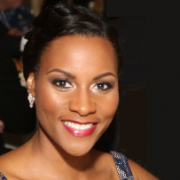Late 2020 conference

Breastfeeding:so ordinary, so special
Online Sept - Dec, 2020
Our 17th online breastfeeding conference
Breastfeeding: so ordinary, so special , our 17th online breastfeeding conference in English covered a wide range of topics to inform and guide your clinical practice and to inspire and challenge your thinking about breastfeeding, nutrition and human lactation.
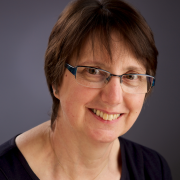
Optimising mother-baby contact and infant feeding in the pandemic
Mary Renfrew, BSc, RGN, SCM, PhD - Read moreOptimising mother-baby contact and infant feeding in the pandemic
Mary Renfrew, BSc, RGN, SCM, PhD
A health researcher, educator, and midwife, Professor Mary Renfrew has conducted research in midwifery and maternity care and in infant feeding and nutrition for around 40 years, and her research has informed and helped to shape public health and infant feeding policy and practice nationally and internationally. She established and led the multidisciplinary Mother and Infant Research Unit for over 20 years, where the research programme focusses on improving health and the quality of care for women, babies and families, reducing the impact of inequalities, and evidence-informed policy and practice. She is currently a member of the International Council of the World Alliance for Breastfeeding Action, the Implementation Programme Board for the Scottish Government review of maternity and neonatal services, and she chairs UNICEF UK Baby Friendly Initiative Qualifications Framework Board.
She has advised governments in several countries, and global organisations including the WHO, UNICEF, and International Confederation of Midwives. She was a Board member of UNICEF UK (2011-2017), and she was Principal Investigator for the groundbreaking global Lancet Series on Midwifery (2011-2016). She was awarded inaugural Senior Investigator status with the UK National Institute for Health Research in 2008, the first midwife to hold this award. She was elected as a Fellow of the Royal Society of Edinburgh in 2014, the first midwife or nurse to be elected to Scotland’s National Academy. She has been awarded honorary membership of the British Association of Perinatal Medicine for services to perinatal medicine, and the Patricia Martens Award for Excellence in Breastfeeding Research by the International Lactation Consultants Association.
Optimising mother-baby contact and infant feeding in the pandemic
In many countries the inevitable focus on reducing infection during the COVID-19 pandemic has disrupted the care of women and babies, and limitations have been imposed on mother-baby contact and on breastfeeding. Drawing on a recent rapid review, this presentation will consider the challenges and will present evidence-based recommendations on optimising mother-baby contact and infant feeding in the current global crisis.
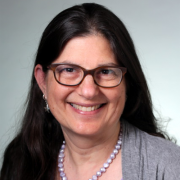
Breastfeeding and COVID-19
Melissa Bartick, MD, MSc, FABM - Read moreBreastfeeding and COVID-19
Melissa Bartick, MD, MSc, FABM
Melissa Bartick is an internist and Assistant Professor in Medicine at Mount Auburn Hospital and Harvard Medical School. She has numerous breastfeeding publications in peer-reviewed journals. She served as the chair of the Massachusetts Breastfeeding Coalition from 2002 to 2014. She served on the Board of Directors of the United States Breastfeeding Committee from 2009-2015. She has served on the Board of the Academy of Breastfeeding Medicine since 2019, where she has coauthored clinical protocols. She was founder of the Breastfeeding Forum of the American Public Health Association, where she served two terms as chair. She is founder and co-chair of her state’s Baby-Friendly Hospital Collaborative. Dr Bartick received her BA from the University of Virginia and holds an MS in Health and Medical Sciences from University of California, Berkeley and an MD from University of California, San Francisco. She works as a hospitalist at Mount Auburn Hospital and is the mother of two grown sons. As of June 2020, she is pursuing an MPH at Harvard School of Public Health.
Breastfeeding and COVID-19
Breastfeeding in the setting of COVID-19 has been a topic of controversy. Recommendations vary greatly as to whether infected mothers can safely nurse their infants or even be in contact with their infants at all. We explored the evidence and analyze recommendations in this context.

Breastfeeding in stressful situations
Telika Howard, IBCLC, CD - Read moreBreastfeeding in stressful situations
Telika Howard, CD (DTI), CLC, IBCLC
Telika Howard is a certified birth and postpartum doula through Doula Training International and certified by the International Board of Lactation Consultant Examiners as an IBCLC. She has 18 years of experience with birth and breastfeeding. She successfully breastfed 7 children including a set of twins and had a variety of birthing experiences such as unmedicated, medicated, and c-section. 18 years ago she started teaching about birth and breastfeeding as a maternal-infant health outreach worker in Memphis, TN, USA. She then went on to volunteer her time educating and sharing about birth and breastfeeding at local community events. Telika became a board member of Shelby County Breastfeeding Coalition, she also worked as a breastfeeding peer counselor in labour and delivery and NICU departments at Regional One Medical Center hospital. After Telika moved back home to Chicago, she continued her work with birth and breastfeeding through Birthways Chicago doulas, Chicago Family Doulas, and Chicago Volunteer Doulas (winning their on-call doulas award) as well as becoming a board member of Breastfeed Chicago. She also teach classes and speak at community groups.
Breastfeeding in stressful situations
Life brings about many stressors for parents, such as postpartum stress, financial stress, relationship stress, environmental stress, and stress from systemic racism. But you can still breastfeed/chest-feed while stressed. This presentation talked about how breastfeeding/chest-feeding is affected by stress and how a lactating person can go about feeding their baby even in the most stressful situations. Also how nursing your baby may alleviate stress and how to relieve stress via other methods.

The emotional and mental health effects of disasters
Terriann Shell, BS, RN, IBCLC, CHES, FILCA - Read moreThe emotional and mental health effects of disasters
Terriann Shell, BS, RN, IBCLC, CHES, FILCA
Terriann Shell is a Registered Nurse, an International Board Certified Lactation Consultant for over 30 years, and a Certified Health Education Specialist (CHES). Terriann works as an IBCLC at an Alaska hospital and also support the Anchorage Women, Infant, and Children program as the IBCLC support for the Breastfeeding Peer Counselors. Terriann has been putting on the Lactation Consultant in Private Practice Workshop in Philadelphia, USA for the past 22 years. She serves as Vice President of the Alaska Breastfeeding Coalition where she continues to suggest many projects to work on and thus, serves on many committees.
The emotional and mental health effects of disasters
This presentation explores the complex, multiple failures that occur during disaster situations and issues that happen when sheltering-in-place, in a birthing facility, or in an emergency shelter situation and the psychological and physical responses that makes breastfeeding very difficult. It also explored ways to communicate effectively with suffering victims.

The impact of separation policies on breastfeeding families during the COVID-19 pandemic
Cecília Tomori, PhD, MA - Read moreThe impact of separation policies on breastfeeding families during the COVID-19 pandemic
Cecília Tomori, PhD, MA
Dr Cecília Tomori is a Hungarian-American anthropologist and public health scholar who currently serves as Director of Global Public Health and Community Health at Johns Hopkins School of Nursing. Dr Tomori’s research combines anthropological and public health approaches to investigate and address the structural and sociocultural drivers that shape health inequities in maternal and child health as well as sexual and reproductive health. This work centers on deep engagement with the lived experiences of local and global communities who face numerous health challenges due to stigmatization and discrimination. Dr Tomori’s work primarily focuses on breastfeeding, infant sleep, and infectious disease prevention. She has authored two books that explore social and biocultural aspects of breastfeeding, Breastfeeding: New Anthropological Approaches (with AEL Palmquist & EA Quinn, Routledge 2018) and Nighttime Breastfeeding: An American Cultural Dilemma (Berghahn 2014), and led numerous publications, including a recent paper on the impact of mother-infant separation policies on breastfeeding during the COVID-19 pandemic in Maternal Child Nutrition.
The impact of separation policies on breastfeeding families during the COVID-19 pandemic
The World Health Organization has provided comprehensive and consistent guidance that promotes proximity and breastfeeding for mothers and infants affected by COVID-19. While some settings followed WHO guidance, others implemented policies that recommend separation for COVID-19-affected mothers and infants. These policies aim to protect infants from potential harm from maternal infection with SARS-CoV-2, but may not be effective at reducing the infant’s risk of transmission and have numerous unintended consequences. The presentation explored the cultural drivers and detrimental effects of separation policies, including disruptions to breastfeeding, burdening overwhelmed health care systems, and compounding harm among those who are already marginalized. Health services must consider the full impact of separating mothers and infants in their policies, and prioritize mother-infant contact amid the COVID-19 pandemic.
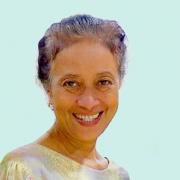
Relactation intervention in emergency
Maria Ines Fernandez, BA (Mass Comm) - Read moreRelactation intervention in emergency
Maria Ines Fernandez, BA (Mass Comm)
Maria Ines Avellana-Fernandez, nicknamed Innes, is one of the pioneering founders of the breastfeeding movement in the Philippines since 1981. With her organisation Arugaan, she undertook intensive projects on the Relactation Journey funded by UNICEF for thousands of typhoon survivor mother-baby pairs, and Breastfeeding Rescue funded by WHO. Yes, Grandma can Breastfeed was an article she wrote for WABA Newsletter in 2017 as she shared her wet-nursing experience to a one year old baby for two months.
Relactation intervention in emergency
Relactation intervention in emergency showed the power of a special relactation massage intervention that quickly stimulates the strongest lactation points in the whole body, from head to toe, for breastmilk supply and flow, in tandem with the power of counselling that massages the mind for breastfeeding preparedness. It shared experiences and expertise in breastfeeding response in times of calamities and crisis: during typhoons, volcano eruptions, refugees due to ISIS seige and the COVID pandemic by reviving sound traditional practices.
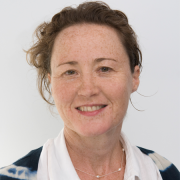
Breastfeeding grief - why we need to debrief all mothers and their partners
Jennifer Ayton, PhD, MMR, RNRM, IBCLC - Read moreBreastfeeding grief - why we need to debrief all mothers and their partners
Jennifer Ayton, PhD, MMR, RNRM, IBCLC
Jennifer Ayton is the acting program lead of the undergraduate medical degree public health curriculum at the University of Tasmania. An innovative qualitative researcher with a PhD in sociology and public health, and an extensive clinical background in midwifery/nursing Jenn works collaboratively with a diverse range of partners across sociology, criminology, creative arts, public & primary health & rural & remote health. Her research focus is maternal and reproductive health, qualitative and mixed methods, health sociology, critical arts & health.
Breastfeeding grief – why we need to debrief all mothers and their partners
This lecture covered the phenomenon of breastfeeding grief. I defined and explored some of the determinants of early cessation of exclusive breastfeeding, describe the narrative of cessation and the sense of loss from women’s and their partners perspectives, and proposed the use of a debriefing scale for breastfeeding families as a way to support self-confidence.
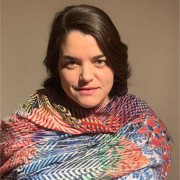
Oral colostrum care: oral immune therapy for preterm babies
Mariana Colmenares, MD, IBCLC - Read moreOral colostrum care: oral immune therapy for preterm babies
Mariana Colmenares, MD, IBCLC
Mariana Colmenares Castaño was born in Mexico City, and from an early age she was fascinated by animals and nature. She studied medicine at the National University of Mexico (UNAM), and found her passion as a pediatrician doing her residency at the National Pediatric Institute. With the birth of her first child, Mariana witnessed the lack of knowledge and commitment with breastfeeding and nutrition within the medical profession. This was her impetus to specialize in breastfeeding medicine. Certified as a Lactation Consultant (IBCLC) in 2011 by the International Board of Lactation Consultant Examiners (IBLCE), she is currently a member of the International Lactation Consultant Association, board member in the Academy of Breastfeeding Medicine and a proud founding member of the National Lactation Consultant Association of Mexico (ACCLAM), where she served on the Board of Directors as Education Coordinator (2014-2019). As part of her continuing professional training she studied at the International Breastfeeding Clinic, in Toronto CA.
Mariana is a member of the team for Breastfeeding Country Index BFCI, a project from Yale University and Universidad Iberoamericana whose goal is to develop an evidence base metric that can help decision-makers to understand the current status to elevate breastfeeding programs and increase breastfeeding rates. A frequent speaker at national and international conferences, she has published numerous articles and co-authored a chapter for the National Academy of Medicine. To contribute to a medical profession better prepared to support breastfeeding, she teaches medical students, and serves as a consultant for the National Health Institute and UNICEF.
Oral colostrum care: oral immune therapy for preterm babies
When a new baby is born also born is a new family and a new mother. Pregnancy is almost always surrounded of fantasy and illusion, motherhood classes and happiness. When a baby is born too early everything seems to fail, there can be feelings of guilt and fear. The question of when the baby will be fed appears early, and the support to the family in breastfeeding journey is determinant. Many preterm babies, especially extreme preterm and sick will be fasting for many weeks. In this cases, it is very difficult to initiate and maintain breastmilk production. The use of oral colostrum, not for feeding purposes, but for its immunological properties in preterm babies impacts considerably interacting with linfoid tissue and promoting and improving microbiome and immune response. Also, when you involve the family in the care of the sick or preterm baby impacts significantly in posterior feeding practices, hospital stay and neurological and infectious outcomes.
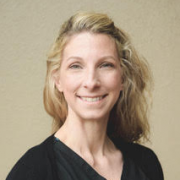
Providing effective care to the autistic woman during lactation and breastfeeding
Genny Stiller, RN, MSN, C-PNP, IBCLC - Read moreProviding effective care to the autistic woman during lactation and breastfeeding
Genny Stiller, RN, MSN, C-PNP, IBCLC
Genny Stiller earned a Master of Science in Nursing degree in 2005, board certified as a Pediatric Nurse Practitioner in 2006 and became an IBCLC in 2017. She has been supporting women, infants, and children for over 19 years through specialized hospital care, mother to mother support groups, and lactation training.
Providing effective care to the autistic woman during lactation and breastfeeding
This lecture covered a vignette of female specific traits in the breastfeeding woman with autism spectrum disorder, lactation sensory assessment, and tools for effective supportive care by the lactation consultant.
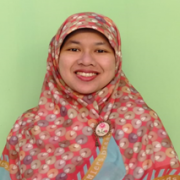
Breastfeeding Community Ambassadors and mobile lactation support in Indonesia (Bogor – West Java)
Gracia Azra Lestari, MD, IBCLC - Read moreBreastfeeding Community Ambassadors and mobile lactation support in Indonesia (Bogor – West Java)
Gracia Azra Lestari, MD, IBCLC
Dr Gracia Azra Lestari from Bogor, Indonesia, is a mother of three daughters (10 years old, 8 years old, and 3 years old) and all of them were breastfeed until three years old. She is working as a civil servant medical doctor at Pasir Mulya Public Health Center Bogor – Indonesia. She has been a breastfeeding community volunteer at the Bogor Branch of Asosiasi Ibu Menyusui Indonesia (AIMI) since 2011 and now heads their Education Division. Gracia has also volunteered at Indonesian Red Crescent since 2016. She was IBCLC certified in 2015 and will re-certify this year.
Breastfeeding Community Ambassadors and mobile lactation support in Indonesia (Bogor – West Java)
The proportion of early breastfeeding initiation, exclusive breastfeeding, and stunting are the main factors behind the making of the innovation programs at Pasir Mulya Public Health Center Bogor, Indonesia. These innovation programs consist of two services, in-building service and outside-building service. The program for in-building service is a lactation unit. Meanwhile, The program for outside-building services are breastfeeding class, chatting time, breastfeeding ambassador, breastfeeding support group, and mobile lactation.
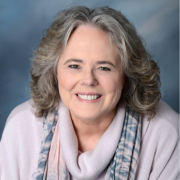
Promoting the Baby Friendly Hospital Initiative (BFHI) in global neonatal wards/NICUs
Nancy Wight, MD, IBCLC, FABM, FAAP - Read morePromoting the Baby Friendly Hospital Initiative (BFHI) in global neonatal wards/NICUs
Nancy Wight, MD, IBCLC, FABM, FAAP
Nancy Wight obtained her BA from UC Berkeley, her MD and Residency at the University of North Carolina, Chapel Hill, and her Fellowship in Neonatology at UC San Diego, USA. After 37 years as an attending neonatologist and over 18 years as medical director of lactation, she retired from clinical practice January 1, 2019. She has been an IBCLC since 1988. She is currently treasurer and education coordinator for the San Diego County Breastfeeding Coalition (SDCBC), which she helped found in 1994. The SDCBC is a small 501(c)3 association whose mission is to promote, protect, and support breastfeeding through education, outreach, and advocacy in the community. On a personal note, she is the mother of a (formerly breastfed) student of archaeology, and mother to two large dogs. She lives on Point Loma in San Diego, CA, USA with a beautiful view of the ocean and loves to travel.
Promoting the Baby Friendly Hospital Initiative (BFHI) in global neonatal wards/NICUs
The first few hours and days of a newborn’s life are a critical window for establishing lactation and for providing mothers with the support they need to breastfeed successfully. The benefits of human milk and the risks of not receiving it have been well studied and are universally recognized. Current World Health Organization (WHO) guidelines and implementation guidance state that all infants, including small, sick and/or preterm infants, should be fed human milk. Preterm and ill infants may not be able to feed at the breast at birth, but can receive the benefits of human milk immediately, and breastfeed eventually. Of various routine neonatal therapies, human milk is one of the most empirically supported for safety, efficacy, availability and cost effectiveness. The presentation explored the clinical implementation of BFHI principles for neonatal wards/NICUs.
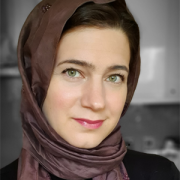
Skinship: touch that builds relationships and touch that breaks it
Zainab Yate, MSc, Author - Read moreSkinship: touch that builds relationships and touch that breaks it
Zainab Yate, MSc, Author
Zainab Yate is a Biomedical Ethicist, Vice Chair and named qualitative lead on a pediatric flagged Research Ethics Committee Panel for the Health Research Authority (HRA) in the UK, for over a decade. Her working background is in Public Health and Commissioning with a Primary Care Trust for the National Health Service (NHS) in the UK. She is also a member of Kings College London Ethics Governance, Policy & Operations Committee (KCL). She has been a volunteer breastfeeding peer supporter with the NHS for a number of years and is the owner-author of the resource site for mothers and healthcare practitioners on Breastfeeding / Nursing Aversion and Agitation (BAA), www.breastfeedingaversion.com, where she researches and writes for the viewers of this site, to try to understand what aversion is and why it arises. She also volunteers to support the work of the World Breastfeeding Trends initiative in the UK (WBTi), a key tool to inform policy and change for all infant feeding partners and government bodies.
Skinship: touch that builds relationships and touch that breaks it
Some mothers can experience negative emotions associated with breastfeeding, and touch is a factor that is considered as a trigger. In our modern society breastfeeding is often used – problematically – to exemplify myths about motherhood and maternal love. Breastfeeding or nursing aversion – intense, distressing feelings that are experienced when breastfeeding – can be both unexpected and hugely upsetting, particularly when women may have already overcome significant challenges in order to breastfeed.
This presentation examines what we know about this poorly understood aspect of infant feeding, in a carefully researched presentation that will outline her biopsychosocial theory of the phenomenon and her suggestions as to what can help mothers with aversion – and those who support them in their clinical care.
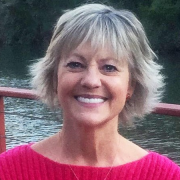
Listening with our hearts (Counseling breastfeeding families)
Anna Swisher, MBA, IBCLC - Read moreListening with our hearts (Counseling breastfeeding families)
Anna Swisher, MBA, IBCLC
Anna Swisher has been a board-certified lactation consultant for over eighteen years, and a La Leche League Leader since 1995. She works in both private practice (since 2002) and in the hospital (since 2003). Anna has also worked as the clinical coordinator for Mothers’ Milk Bank at Austin. Anna is the co-author of Counseling the Nursing Mother (with Judith Lauwers), now in its seventh edition. This lactation textbook has won Book of the Year award twice from the American Journal of Nursing: first place in 2005, and second place in 2015.
Anna also enjoys other writing projects, including editing The Breastfeeding Atlas for Barbara Wilson-Clay and Kay Hoover, and helping people write their memoirs. She spent eleven years in the corporate marketing world before becoming a mother. Mom of three grown children, Anna has two adorable grandsons and one very spoiled Chihuahua.
Professionally, Anna loves empowering parents in acquiring their parental role, and educating families to meet their breastfeeding goals. She also enjoys speaking at conferences and mentoring the next generation of health care givers in lactation science. Personally, Anna loves hiking, traveling, reading, writing, and spending time with family and friends. Coffee is her favorite beverage.
Listening with our hearts (Counseling breastfeeding families)
Participants learnt the importance and attributes of participant-focused counseling, and the sequence of effective counseling sessions: information gathering, affirmation, and education. Examples of helpful and non-helpful approaches were discussed.
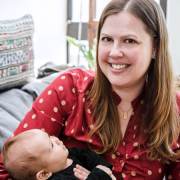
Repairing the leaks in the boat: privacy risk assessment for digital and online communications
Annie Frisbie, MA, IBCLC - Read moreRepairing the leaks in the boat: privacy risk assessment for digital and online communications
Annie Frisbie, MA, IBCLC
Annie Frisbie has been an IBCLC in private practice since 2011. She is the author of Paperless Private Practice for Lactation Consultants, and Lactation Private Practice: From Start to Strong, and the creator of the Lactation Private Practice Essential Toolkit. She is the cohost of the Lactation Business Coaching Podcast and a conference speaker on privacy, informed consent, and the business of private practice.
In 2018 she was honored with the US Lactation Consultant Association’s President’s Award, “awarding those that demonstrate extraordinary service to the association and profession.”
She is a produced screenwriter and proud member of the Writers Guild of America, East. She has a BA from Franklin and Marshall College, and an MA in Cinema Studies from New York University, USA. In a previous life she was a film critic. She lives with her husband and their two children in Queens, New York, USA.
Repairing the leaks in the boat: privacy risk assessment for digital and online communications
From the very first contact with a potential new client through scheduling, charting, and reporting all the way to tracking client outcomes through weaning, technology offers the lactation consultant powerful tools for efficiency, productivity, and improving client self-efficacy. These tools all have the potential to expose your client’s private information when used incorrectly.
As a lactation consultant, not only do you have an ethical obligation per the IBLCE Code of Professional Conduct to protect client privacy, you also have legal obligations under your country’s applicable laws. Whether you are 100% paperless or have a preference for pen and paper, chances are you are using at least one cloud-based app or service–and you could be using them in a way that puts you in breach of privacy laws–even if the product says it is compliant.
In this session, you:
● Learnt specific strategies to protect client privacy from the moment of first contact, through evaluating tools for communications and documentation
● Evaluated the risks and benefits of popular cloud-based tools for healthcare providers
● Understood how to assess your own privacy compliance and repair any breaches you find
By understanding what privacy actually means in practice–not just theory–you can develop and implement a privacy risk assessment specific to your practice setting, client demographic, level of tech proficiency, and clinical style.
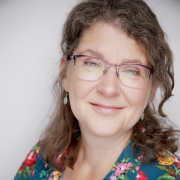
Tongue-tie, can breastfeeding be (part of) the solution?
Myrte van Lonkhuijsen, IBCLC - Read moreTongue-tie, can breastfeeding be (part of) the solution?
Myrte van Lonkhuijsen, IBCLC
An educational scientist by training, Myrte van Lonkhuijsen became an IBCLC in 2000 and has worked in private practice ever since. She got in to breastfeeding support through her own experiences breastfeeding three daughters. It was very clear that just offering the breast and having confidence in breastfeeding was not sufficient to have a good experience. She now knows that her third daughter had a severe tongue-tie. Myrte is fascinated by the interaction between mother and child during breastfeeding and rewards of getting them to work as a team.
Tongue-tie, can breastfeeding be (part of) the solution?
Breastfeeding is a close cooperation between mother and baby. It is also a vulnerable process. The issues caused by tongue-ties are by now once again recognised, and treatment is more available. But the treatment is painful, not always available and it is not always clear a tongue-tie is present or the cause of the breastfeeding issues. Moreover after treatment many of the issues are not instantly resolved: the tongue may lack strength and motor skills, and the high palate remains for a longer period. In this presentation I discussed a way of offering the breast to a baby that allows optimal use of the tongue, and minimises stress on the nipple when a restriction is present and after treatment. This way of latching is called Concorde, originally named after an aeroplane (really!). Concorde also means cooperation and mutual accord and that is a vital aspect of this way of breastfeeding. Breastfeeding itself may train the baby to use the tongue effectively, thereby possibly minimising need for treatment and optimising healing after treatment.
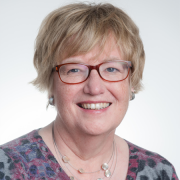
Growth and growth disturbances
Elien Rouw, MD, FABM - Read moreGrowth and growth disturbances
Elien Rouw, MD, FABM
Elien Rouw is a Dutch physician, specialised on healthy infant care, who lives and works in Germany. She is member of the German National Breastfeeding Committee and Board Member of the Academy of Breastfeeding Medicine. She also acts as a Liaison to WABA of the Academy, core partner of WABA.
Growth and growth disturbances
Growth disturbances belong to the most difficult problems in lactation counseling. In this lecture we discussed normal growth in the first days of life and in the first year of life. The participants looked at the difference between slow growth and failure to thrive. Risk factors for growth disturbances were discussed and opportunity for prevention and support for the mother-child dyad were offered.

From one normal to another normal
Gonneke van Veldhuizen-Staas, NLG (Lactation Consultant Dutch Certified, similar to IBCLC) - Read moreFrom one normal to another normal
Gonneke van Veldhuizen-Staas, NLG
Gonneke van Veldhuizen-Staas is, 64, a mother of 5 and grandmother of 6 living in a small town in The Netherlands. Her initial occupational education was as a schoolteacher, but after her first children were born she came into contact with LLL in the early 80s of last century and then became a Lactation Consultant in 1992. She has been a lactation consultant in private practice ever since and teaches health care professionals about human lactation and the care for the breastfeeding family. Gonneke write blogs and books, make educational videos and owns a web shop for ‘breastfeeding things’, which are difficult to obtain elsewhere.
From one normal to another normal
In Gonneke’s 40 years of experience in the counseling of families around breastfeeding and child care the definition of normal has been changing and what was considered normal “yesterday”, might be unheard of “the day before yesterday” and might be obsolete “today”. The lecture took the listeners on a journey through breastfeeding advice history in the last 5-6 decades and compared this to the norm of the blueprint of the human child.

Breastfeeding & BRCA: the lived experience
Aisling Drummond, BA, MRUP - Read moreBreastfeeding & BRCA: the lived experience
Aisling Drummond, BA, MRUP
Aisling Drummond works as a consultant in the hospitality industry and is a mother to two young children, Toby aged 4 and Max aged 6 months. She carries a BRCA2 mutation which has formed much of her life decision making over the past five years. She is a trained peer to peer supporter and works closely with a national cancer charity providing support to other families affected with BRCA. She is also a founding member of BRCA Ireland, an organisation that is setting out to advocate at national level for better resources and services for BRCA families in Ireland.
Breastfeeding & BRCA: the lived experience
This presentation explored the practical, physiological and psychological issues that have affected Aisling’s journey as a young breastfeeding mother carrying a BRCA mutation. Telling her story from the patient perspective she discussed her often fractured relationship with her breasts, her motivation to exclusively breastfeed and the challenges that she has faced as a result of her gene mutation.
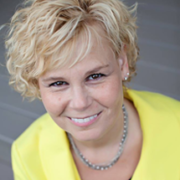
Navigating the first two weeks: the normal newborn and appropriate supplementation
Jennifer Thomas, MD, MPH, IBCLC, FAAP, FABM - Read moreNavigating the first two weeks: the normal newborn and appropriate supplementation
Jennifer Thomas, MD, MPH, IBCLC, FAAP, FABM
Dr Jenny Thomas is a pediatrician and breastfeeding medicine specialist at Aurora Healthcare in Franklin, Wisconsin. She is also a Clinical Assistant Professor of Community and Family Medicine and Pediatrics at the Medical College of Wisconsin (MCW). She received both her MD and MPH from MCW. She has been an International Board Certified Lactation Consultant (IBCLC) since 2003. She currently serves on the American Academy of Pediatrics (AAP) Section on Breastfeeding Executive Board.
A founder and Immediate-past Chairperson of the Wisconsin Breastfeeding Coalition, Dr Thomas serves on the Medical Advisory Board for the Mother’s Milk Bank of the Western Great Lakes. She is one of only a few physicians internationally to be recognized as a Fellow of the Academy of Breastfeeding Medicine (FABM) for her expertise in breastfeeding.
Navigating the first two weeks: the normal newborn and appropriate supplementation
Every species has instinctual behaviors that allow the little ones to grow up to be big ones and keep the species going. What is a normal term human infant supposed to do? Our babies are born into the world needing protection — protection from disease and protection from predators. This session examined and explained how a newborn baby at the chest gets both and why we need a good reason to supplement the newborn.
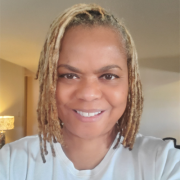
Birth while Black - what does a Black woman have to do just to breastfeed
Denise Bolds, MSW, CD(DONA), CLC - Read moreBirth while Black - what does a Black woman have to do just to breastfeed
Denise Bolds, MSW, CD(DONA), CLC
Denise Bolds is a Native New Yorker, born in Harlem, USA. She is a successful mother of a 30-year-old son. Denise comes from a Southern matriarchal lineage of healers. She holds a Master’s Degree in Social Work and she started her doula business at the age of 50 in 2014. Denise is a self-published author, podcast producer and host and mentor. She is a successful DONA International certified birth doula for 6 years and 167 supported births. During COVID-19 Denise’s virtual birth support in the local hospital parking lot made the local news and New York Times. She loves skydiving, beaches, collecting stones, reading and algebra.
Birth while Black – what does a Black woman have to do just to breastfeed
Just what is it anyway? Why is it that Black women are not breastfeeding? Many non-Black women often ask these questions as breastfeeding has a different approach and behavior for them; it should be the same for a Black woman, right? Many Black women do not receive the validation of their breastfeeding challenges/obstacles and often wonder how could these challenges and obstacles happen to them usually resulting in a crisis.
Denise Bolds, a Black, certified birth doula and lactation counselor has witnessed first hand as a front line birth worker what black women are experiencing with the obstacles and challenges in breastfeeding that starts before and during pregnancy and before and during childbirth going into post-partum. Time to talk it out.

